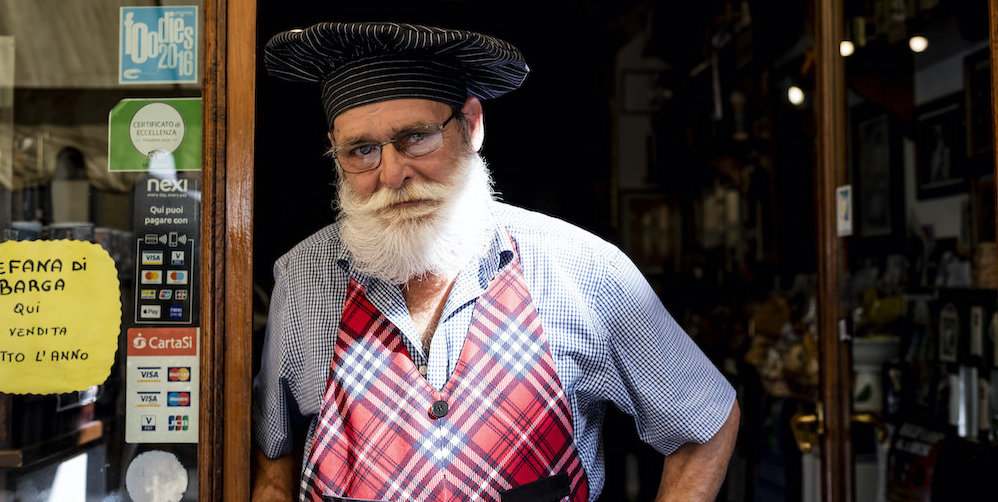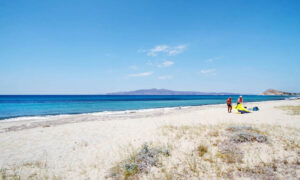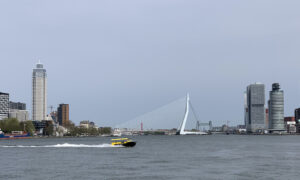It was the most curious thing I’d seen all weekend – maybe even since I’d arrived in Tuscany. Sitting prominently in a store window, the simple, yellow sheet stated definitively, “Barga. The most Scottish town in Italy.”
Whaaat?
My long weekend of discovery had begun with the Festa della Repubblica. The annual celebration on 2 June marks the Italians’ choice in 1946 to exist as a republic rather than a monarchy, following the end of World War II and the fall of fascism.
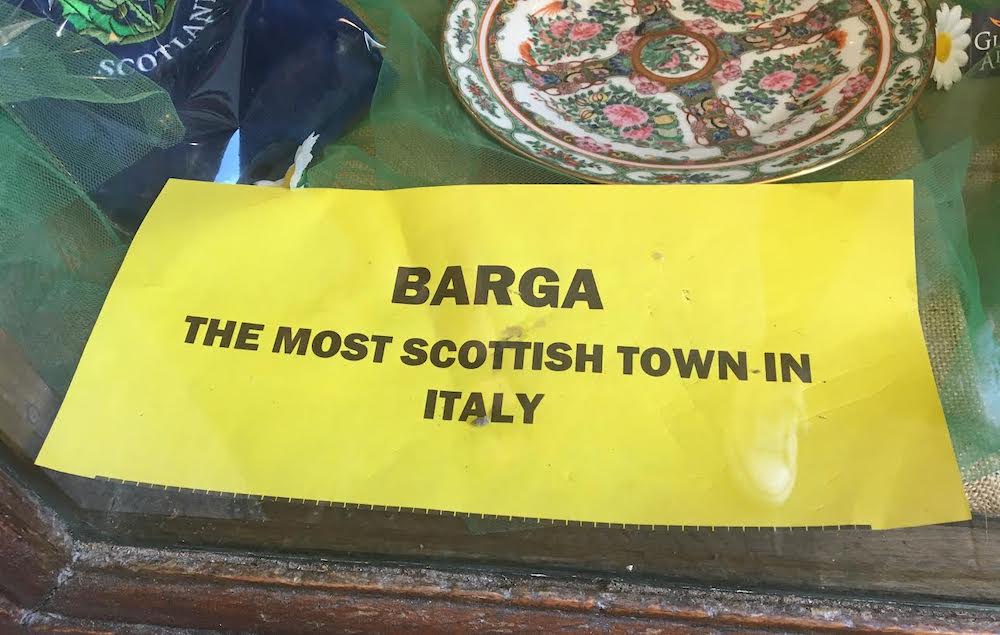
It’s a festive time throughout Italy, not unlike the Fourth of July in the United States. For me, it was an opportunity to bum around, visit a few villages I hadn’t seen before, and observe some of the celebrations.
Having just returned from a weeks-long visit to the States, I was still recovering from a serious case of jet lag. But curiosity got the better of me and I ventured out for a little train-hopping over the next couple of days.
While the main events take place in Rome, everyone everywhere had the long weekend off and there was a pretty joyous vibe throughout the region (which I find is usually the case here anyway). To wrap up the weekend, my friends Anna and Mario suggested a Sunday drive. Our day ended in Barga early that evening.
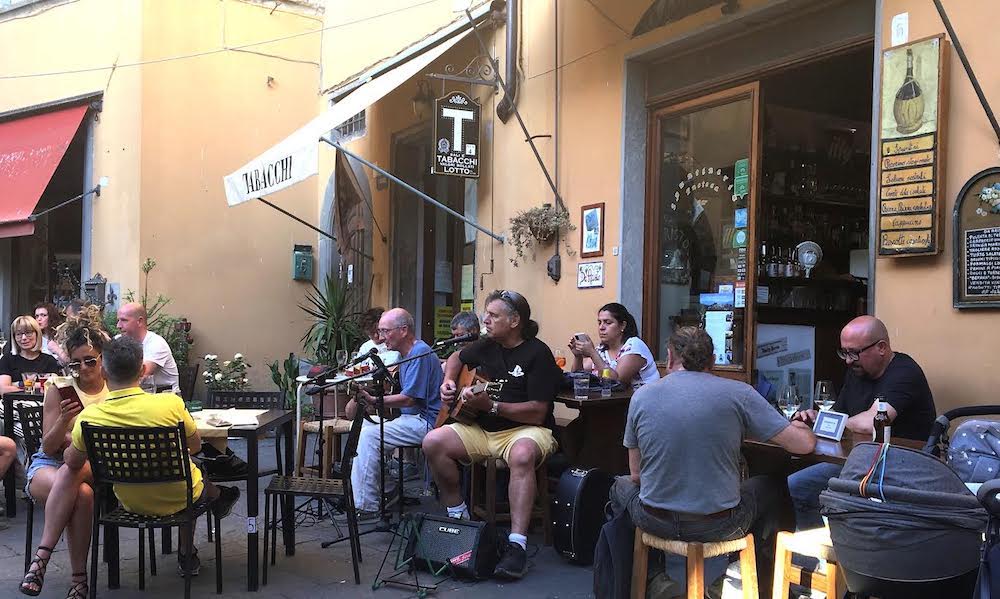
Early expats
Dating back to the 10th century, Barga has been an important part of Lucca Province for hundreds of years. In the late 19th century, its residents began emigrating to Scotland in search of work, joining the ranks of Europe’s early expats. While most returned over the years, their time in Scotland resulted in about 40 percent of Barga’s current population having at least some Scottish lineage.
One of the town’s many annual festivals celebrates their ancestry, and annual visits from those relatives and friends alike swell its population each summer. Of course, this Scottish connection is not news to those more familiar with Tuscan history. For me, it was an intriguing discovery.
But when families returned to Barga from Scotland, they were not alone. As we meandered through the village I noticed diverse crowds around some of the town’s popular haunts, and heard languages beyond just Italian and English. No doubt many were tourists, but others were clearly at home. The village struck me as culturally sophisticated, but still simple and unpretentious.
From the intimate gathering at an outdoor café where we heard “Folsom Prison Blues” with the requisite acoustic guitar; to the many museums and exhibits of Barga’s well-known poets and musicians; to advertisements for the upcoming annual BargaJazz Festival (complete with photos of Billie Holiday, Miles Davis and more), which is apparently a very big deal.
There was something in Barga for everyone. And all in a town of only 10,000 people.
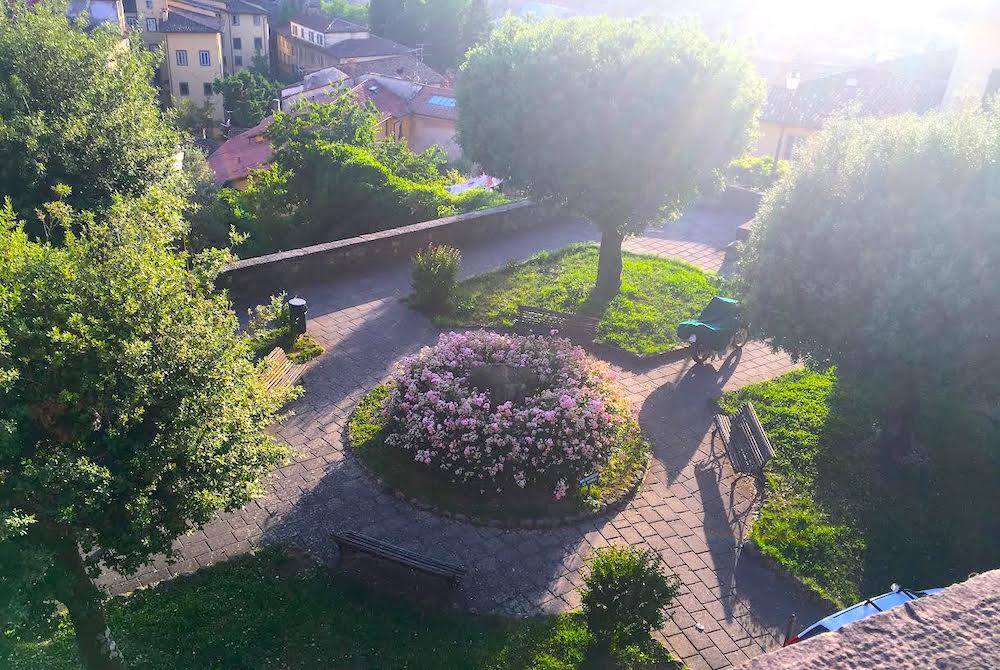
Green and welcoming
Moreover, unlike many small villages, the atmosphere among those residents was warm and welcoming — possibly the most welcoming I’ve experienced so far here in Italy. For me, the clincher was the beauty of the place. While I’ve gone on in this space about the beauty of several Tuscan towns, it would be hard to top the sights of Barga, where the ancient architecture is breathtaking, caper bushes grow out of stone walls, flower gardens are everywhere, and the air is delicately fragrant.
As I continue to contemplate the possibility of one day buying a home here, I’m happy to place Barga among the list of contenders.
In Italy, like much of the rest of the world, times are tough right now. War-related inflation has caused fuel and grocery prices to skyrocket.
With the 25 September election for a new prime minister looming, political instability simmers. For aspiring expats still hoping to settle here, the digital nomad visa has still not been finalized. But, despite it all, resilient Italians are fighting the good fight and seem hopeful and determined.
Although the immediate economic future may not look especially bright, and folks do seem to be generally well informed about these grim projections (all it really takes is a trip to the supermarket), there is still an overall positive outlook. With pandemic mandates lifted, a summer of festivals and celebrations has been kicked off. Travel and tourism are back.
And the Scots have returned to Barga.
––––––––––
Read more here on the BBC website about Barga’s connections to Scotland.
Read more of Carla’s posts here.
Carla Bastos is an expat writer living in Italy.


